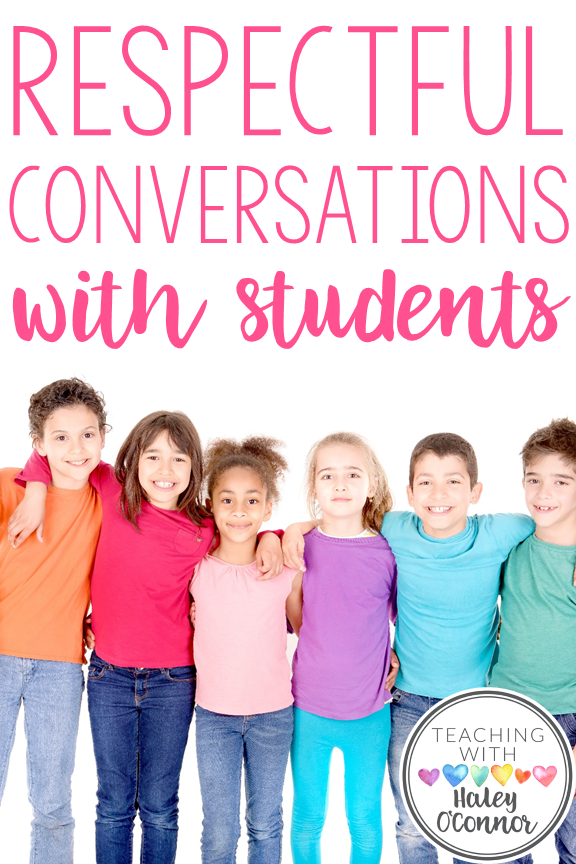Respectful Conversations with Students
Hi friends! I am so excited to announce that I just finished Empathy in my Character Education Curriculum! It is my favorite packet so far, and I totally believe in the activities and discussions your students will have!
As I was writing this curriculum, I was thinking about having empathy for my students. How often have I NOT taken into account their situation, their day, their feelings…especially when I’m frustrated? It really hit me and I’ve been thinking on it for several days.
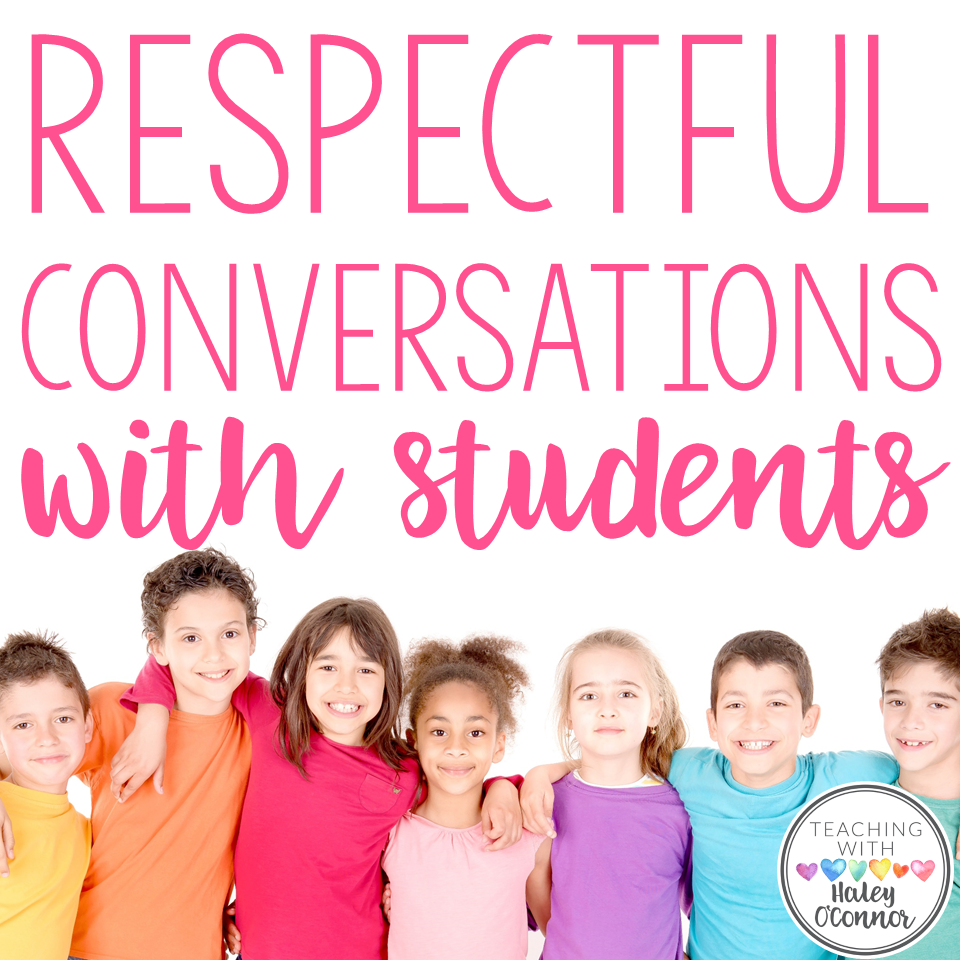
I came up with a few tips for having respectful conversations with students. Having respect for them IS having empathy. It’s considering their feelings and how I would want to be treated if I was in that situation. We ask our students to respect us as adults and as their teacher. But we must respect our kiddos too! They are just little people with feelings and BIG hearts and they need the same respect that we do. Making sure we are respectful in our conversations with them models how they should speak to each other, offers them an opportunity to grow, and builds our relationships with them.
1. Avoid Sarcasm
I LOVE sarcasm. My husband, family, and even most of my friends know how sarcastic I can be. There have even been times that sarcasm with my kiddos (in GOOD fun, with kindness, and when EVERYONE is in on the joke) is okay! But if I’m upset, frustrated, or if they’re in trouble…sarcasm can be so hurtful. Here are some examples of sarcastic vs. respectful comments to our students.
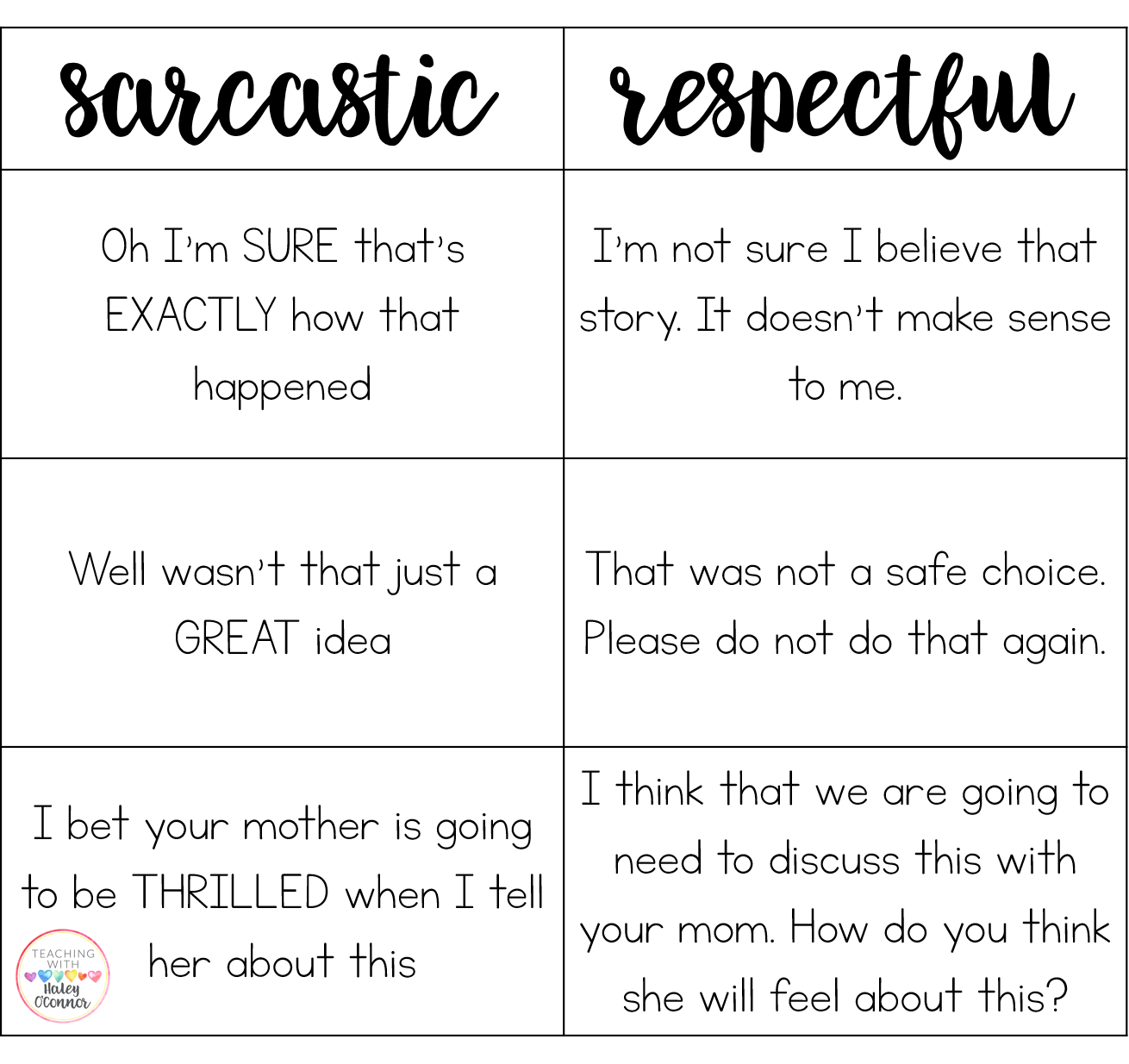
2. Avoid Rhetorical Questions
I want my students to feel comfortable talking to me. I want them to know they can share their feelings with me, express themselves, and answer questions honestly. When I ask rhetorical questions…it sets them up for failure. We know the answer…and they know the answer. It puts them in a position where they don’t know what we want from them. Should they answer? Will that make us more upset? Should they stay quiet? Will that make us more upset? When it comes to behavior, if we ask a question, we should respect a response. They know how to handle that appropriately.
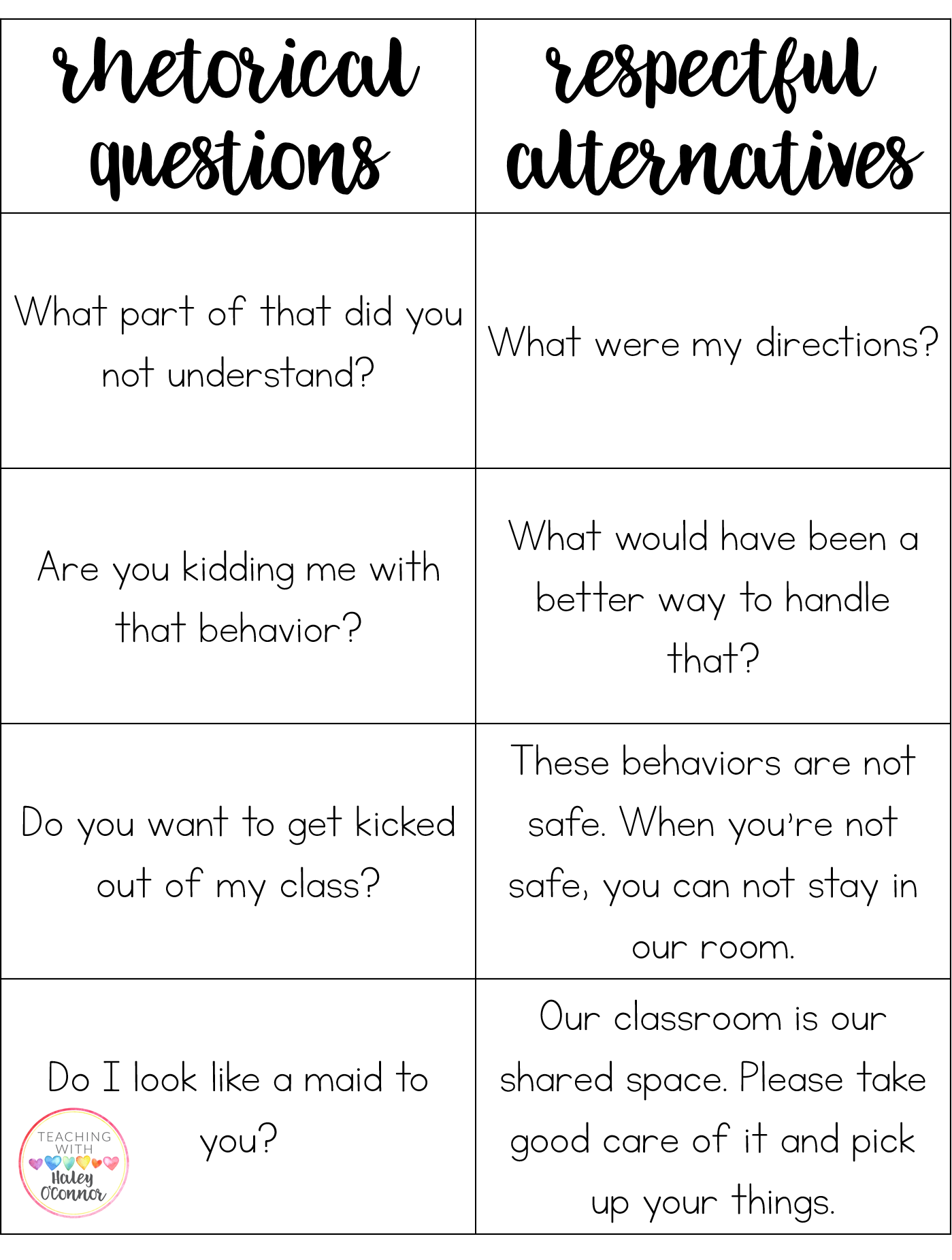
3. If At All Possible, Correct Privately
This is a tricky one, and every teacher feels differently about public behavior management (clip charts, Dojo, etc). I’m not referring to that…I’m referring to the conversation we have with kiddos before/during the consequence. Sometimes, even as adults, we receive consequences in public. BUT…the conversation can and should happen in private, as often as possible.
An example would be getting fired. Being fired IS public because everyone will know. Your coworkers will see when you’re not at work anymore and when you clean your desk. BUT anyone would hope their boss would call them in privately and explain WHY they’re being fired and give you time to process it.
In the classroom, I believe it’s important that our students know there ARE consequences. They may know a student is in the office or lost a privilege. Of course, I would never call attention to that, but in some respects, those consequences are public because others know about them. But that is entirely different than shouting at a student in front of others or correcting a student in front of their peers.
When we harshly correct students in front of their peers, they get upset. We would too! But for some kiddos, especially our more challenging ones, being upset will lead to them making poor choices. They’re humiliated in front of their friends, and now need to save face. They need to show friends that they don’t care what we say…that’s where we see escalation.
In faculty meetings, I often talk when I’m not supposed to. It’s terrible. I know it. I have tried to get better. But I would be absolutely mortified if my principal said “Haley…I have asked you to stop talking while I am talking.” I would turn bright red, probably quit, and never ever forgive her. BUT if she gave me a glance and said respectfully, “I know we have a lot say, but please be respectful of those trying to listen” it gives me the opportunity to change my behavior without a total meltdown. If it continued, she might need to speak with me after the meeting. That’s never happened, thank goodness, but if it did, I really couldn’t fault her!
It’s the same thing with our students. I hear it in the hallways alot. “Liam…walk in line. Liam…hands behind your back. Liam…get it together. Liam…bubble in your mouth.” I have been guilty of saying the same students’ name over and over in that short a period of time. Instead, I could choose to say “Let’s stop. I want everyone to look at your body. Are you doing what you should be?” OR…later on…pulling him aside. “Liam..I noticed you had a hard time walking in the hallway. I think we need to practice that some more. Can you show me the appropriate way to walk in the hallway?” It’s still correcting the child and addressing the behavior, but it’s much more respectful. It’s treating them the way I would want to be treated.
Disclaimer: I totally understand that sometimes a child is being unsafe or they are too far to reach before something terrible happens. But our GOAL should be respectful, private conversations. 🙂 That should be the norm and the other should be the irregularity instead of the other way around. 🙂
4. Be Honest
It’s okay to tell our students how we feel! Part of them developing empathy means they understand how people feel. It’s okay for us to share that with them if we remain respectful of them and don’t share TOO much. When something happens, it’s okay to say “that really hurts me when you say that.” They understand that! It models appropriate conflict resolution and helps them with future conflicts. I want my students to feel like they can share their feelings with me, too!
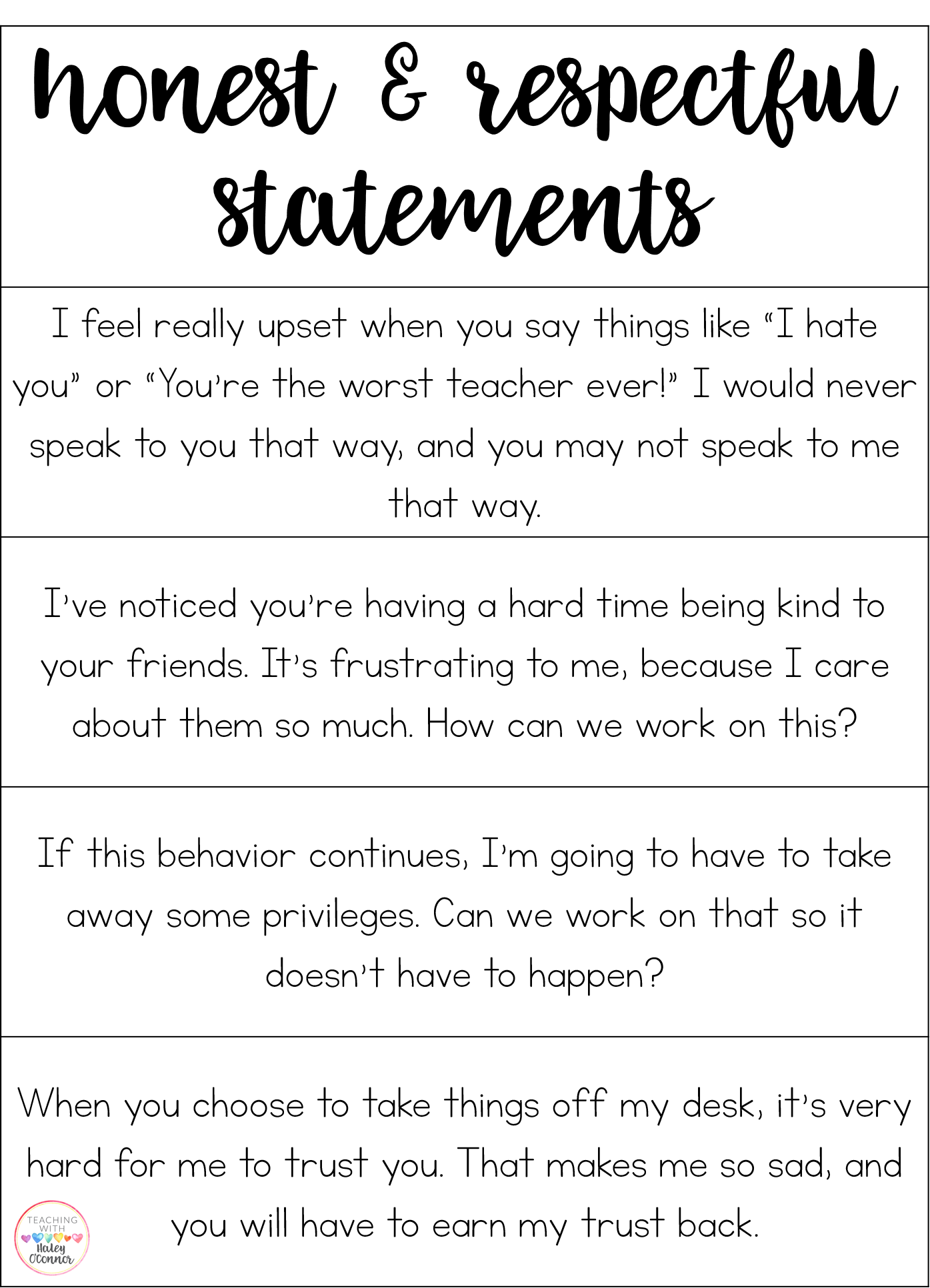
5. Avoid Threats
I feel like this one is discussed the most with teachers, but it’s also something that is SO easy to do. When we have challenging kids, that we are frequently redirecting, it is so easy to threaten them. But it’s truly not effective and waters down what we actually want them to understand. It IS okay to say what will happen next…it just needs to be specific and we MUST follow through. If you don’t know what consequence will be given…then I like to say “I’m going to have to give you a consequence.” My students know that could mean missing out of an activity, writing a letter, etc. Of course, these are conversations that happen privately. The rest of my class doesn’t need to hear what the consequence will be. If it happens, they’ll find out anyway. 🙂
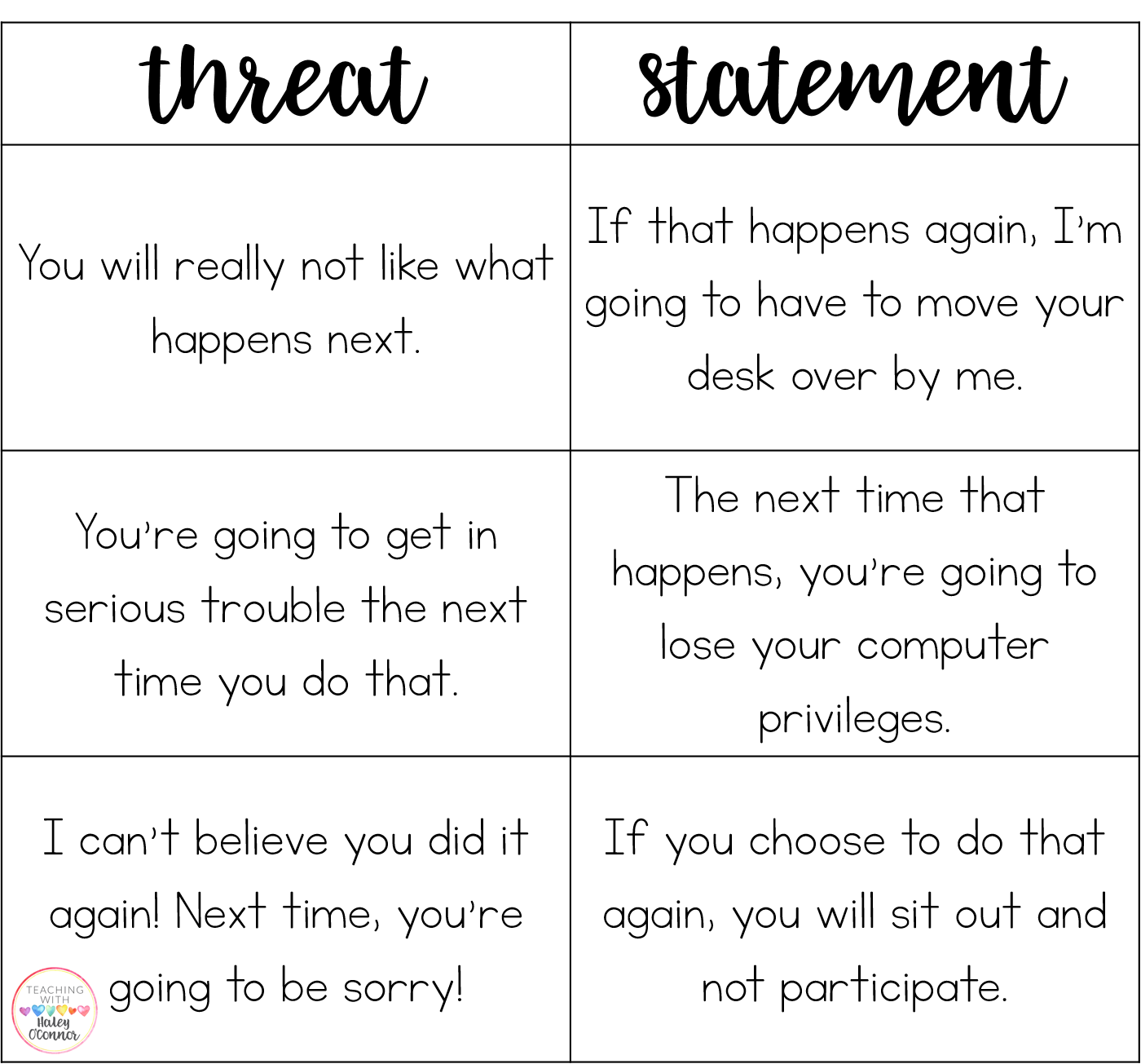
Speaking respectfully to our students builds our relationships with them, models how they should treat others, and creates an environment that our students can truly thrive! When they trust us to be respectful to them, they open their hearts up to us. That’s when we truly make a difference. When they trust us, they take risks. They learn and grow. 🙂 Relationships truly make all the difference in our classrooms! 🙂
What would you add to this list? I’d love to hear! Share it with me in the comments!
